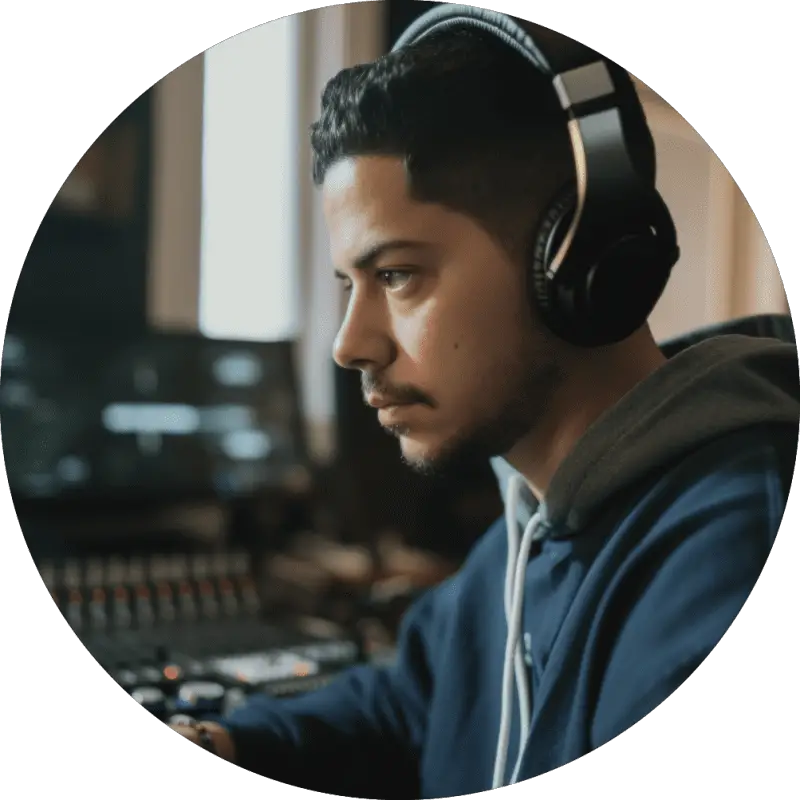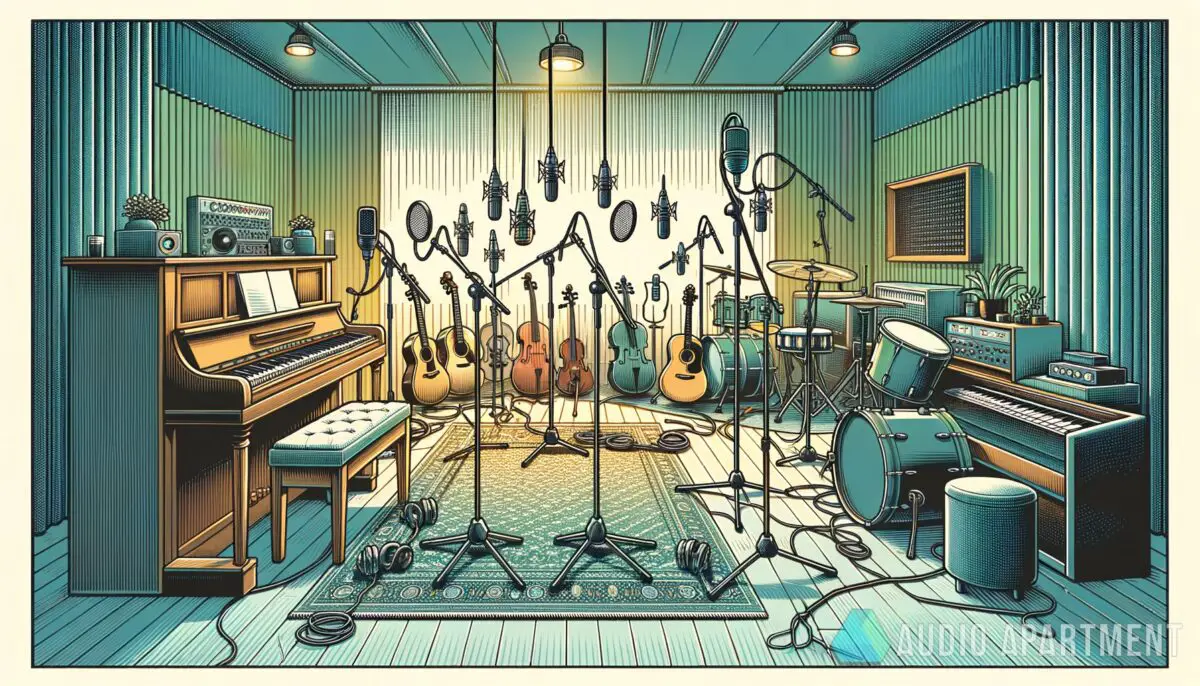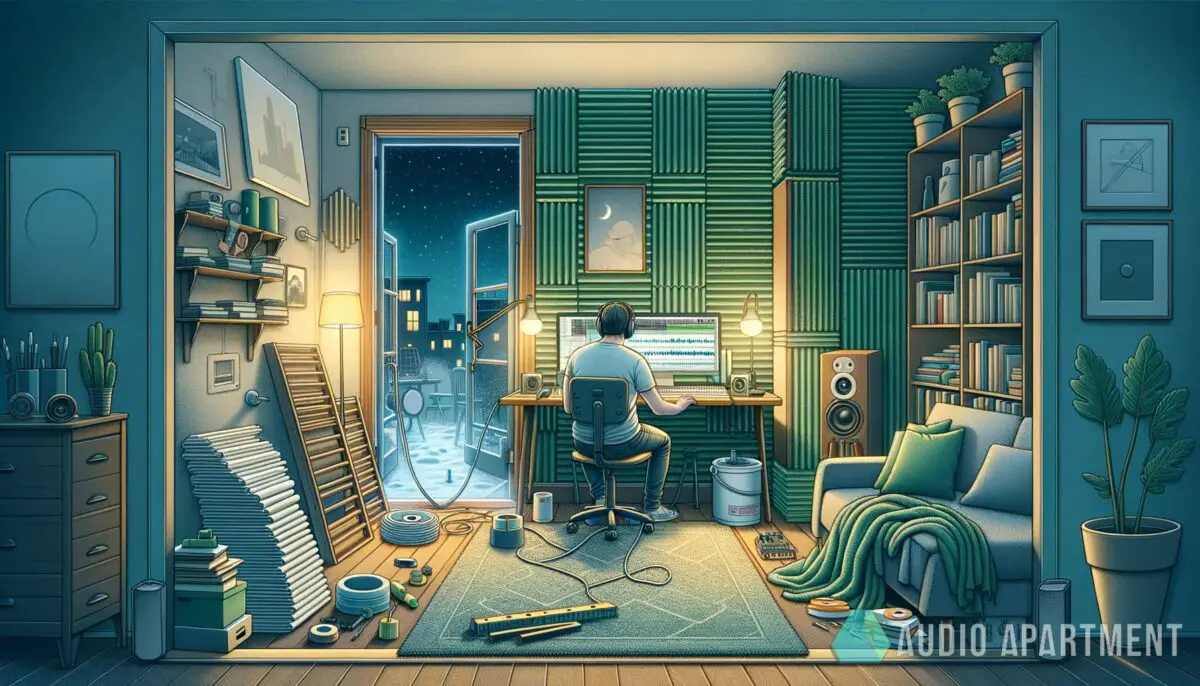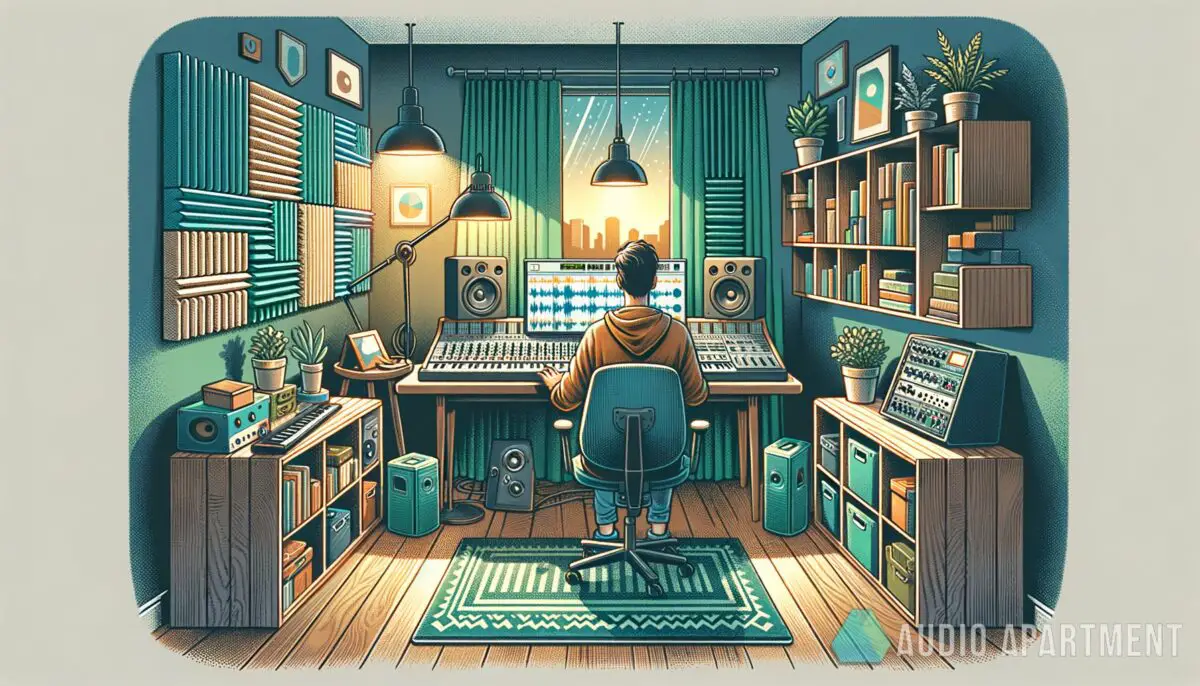Ever tapped your feet to the rhythmic poetry of rap music? Have you ever wondered about the roots of this incredibly dynamic genre? Buckle up, my friend; we’re about to dive into the rich tapestry of rap music, its gritty origins, and its journey to mainstream recognition. Stick around; you won’t want to miss this musical rollercoaster.
What is rap music? Rap music is a genre that melds spoken verse with rhythmic beats. Originating from African-American inner-city street culture, it offers a uniquely powerful outlet for storytelling and social commentary.
How did rap music begin?
Rap music, a cadence-rich genre that spews rhymes faster than much else, traces its lineage to the inner-city street culture of African Americans. Some might say it’s like poetry with a punch, others call it the music of the streets – but we can all agree, it’s pretty much a revolution that’s still rippling through the music business today.
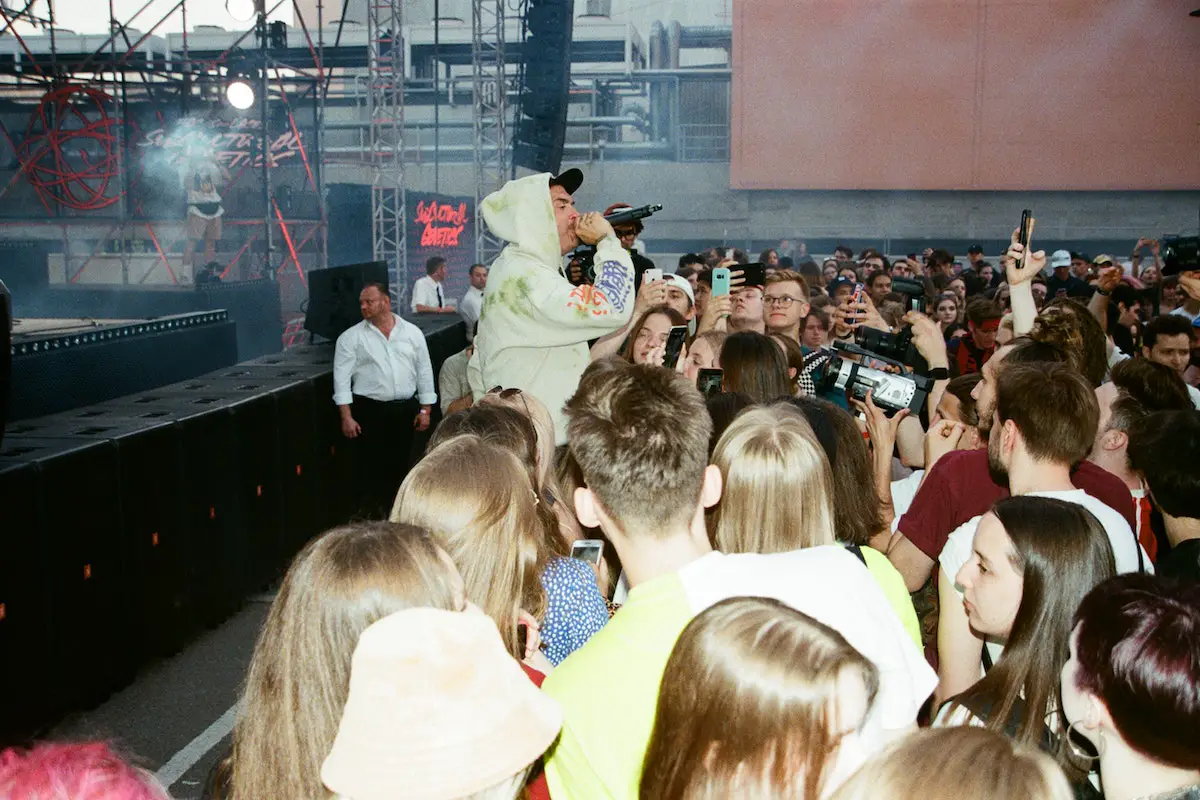
Enter the 1970s, in New York, where the DJs and MCs were the wizards flipping vinyl and spitting rhymes, creating rhythm and beats that were the very foundation of the first rap songs. The Sugarhill Gang gets to wear their crown for releasing the first major rap single, – Rapper’s Delight, in 1979. And there’s been no looking back since. This genre has only climbed up, gaining global recognition.
AKAI Professional MPK Mini MK3

AKAI Professional MPK Mini MK3
How has rap music evolved over time?
Fast-forwarding to the 21st century, we saw enterring the mainstream and reshaping the music landscape. Some call it the Kanye Effect, but that’s a story for another day. As rap gained popularity throughout the early 1980s, we started to see the emergence of recording labels, like Def Jam, wholly dedicated to producing this music style.
Rap music was nurtured and influenced by some major talents; DJs Grandmaster Flash and Kool Herc…
Rap music was nurtured and influenced by some major talents; DJs Grandmaster Flash and Kool Herc who emphasized rhythm and introduced percussion instruments into their music. DJ Afrika Bambaataa, another influencer, was the first to innovate by adding synthesizers to his music.
The evolution didn’t stop there, folks. Rap music began to branch out, birthing subgenres. One of the most famous, or infamous (depending on who you ask), is gangsta rap which dives deep into the violent realities of life in the inner city. Shout out to Dr. Dre, Snoop Doggy Dogg, and Notorious BIG, who became the champions of this particular genre.
What are the different subgenres of rap?
Rap music has a variety of subgenres, including:
- Old School Rap: This includes most rap music from the late 1970s to the mid-to late 1980s. For a taste of this, you must give Tupac a listen, trust me!
- Mumble Rap: Known for rapid, often unintelligible rhymes. Artists like Young Thug and Lil Yachty are serving this subgenre pretty well.
- Gangsta Rap: Born in the early 90s and early 2000s, it goes all out in depicting a gang member’s life on the streets. Geto Boys? That’s just a sick start.
- Emo Rap: Darker side, folks. Slower beats, and emotionally-charged lyrics about personal pain. Try Juice WRLD and XXXTentacion.
- SoundCloud Rap: Thanks to the free music streaming platform, many new artists have found a launch pad, building their following and honing their skills.
How has rap music impacted other music genres?
Rap music didn’t just create waves in the music industry, it caused a full-blown tsunami altering the landscape of other genres too. Believe it or not, the rhythms and beats often borrowed from soul, funk, or rock have fluidly blended into rap. And that’s what I call a ‘musical masterstroke’! Musicians remixed these sounds, adding their own flavor, transforming the tone, and even integrating synthesized musical elements.
Knowing the roots and evolution of rap music is like holding a mirror to the changing societal norms and expressions. So, when you’re bobbing your head to a rap track next time, remember there’s a whole lot of history behind those rhythm-rich rhymes. It’s more than just music, it’s a cultural shift.
How diverse are rap songs?
Rap songs are as diverse as the people who create them. Sure, there’s always talk about controversial themes like gang violence, but hey, that’s not all there is to it. Rap is often raw and real, talking about personal experiences, political views, love, loss, and even fictional events. You never know what to expect next in a rap song and honestly, isn’t that the crazy part of its appeal?
How does rap music influence home recording studios?
Rap music’s evolution plays a significant role in how home recording studios are set up. Rap, with its emphasis on beat and rhythm, requires a different setup than, for instance, a rock band.
- Key equipment for any aspiring rapper includes an Audio Interface and a midi controller.
- DAWs, or Digital Audio workstations, are incredibly important for producing beats and mixing tracks. Pro Tools, anyone?
- No rap studio is complete without a high-quality microphone. XLR microphones are a good investment.
What are the key elements in rap music production?
When we dive into the depths of rap music from a music production or audio engineering perspective, there is a lot to uncover. Here are some of the key elements in rap music production:
- Beat: The beat is the rhythmic foundation of a rap song. It includes the drum patterns, basslines, and other percussion elements that establish the tempo and groove.
- Drum Patterns: The drums are a crucial element in rap production. Distinctive drum patterns, including kicks, snares, hi-hats, and claps, create the rhythm and drive of the track.
- Bassline: The bassline provides the low-end frequencies that add depth and impact to the track. A strong bassline can make a rap song more powerful and memorable.
- Melody: Melodic elements such as synth lines, chords, and instrumental hooks add musicality to the beat. While rap beats often focus on rhythm, melodies can enhance the emotional impact of the song.
- Sampling: Sampling involves taking snippets of audio from existing songs, recordings, or other sources and incorporating them into the beat. Sampling is a fundamental aspect of rap production, as it allows producers to create unique sounds and pay homage to musical influences.
- Instrumentation: Beyond drums and bass, various instruments like keyboards, guitars, brass, and strings can be used to add layers and textures to the beat.
- Arrangement: The arrangement refers to how the different elements of the beat are structured throughout the song. It involves arranging sections like verses, hooks, and bridges to create a coherent and engaging musical journey.
- Sound Effects: Sound effects, also known as FX, can add additional flair and atmosphere to the beat. These might include scratches, vocal samples, risers, and other audio snippets.
- Layering: Layering involves adding multiple sounds together to create a fuller and more intricate sound. This can make the beat more dynamic and interesting.
- Production Techniques: Producers use various techniques to shape the sound, such as filtering, EQ, compression, reverb, and more. These techniques help balance the frequencies, enhance specific elements, and give the beat its final sonic character.

Who are some iconic artists in the rap scene?
No article about rap would be complete without a mention of some of the heavyweights in the game. Here’s a data table featuring some iconic artists in the rap scene:
| Artist | Years Active | Notable Albums | Signature Songs |
|---|---|---|---|
| Tupac Shakur | 1991-1996 | “All Eyez on Me”, “Me Against the World” | “California Love”, “Dear Mama” |
| The Notorious B.I.G. | 1992-1997 | “Ready to Die”, “Life After Death” | “Juicy”, “Big Poppa” |
| Jay-Z | 1996-present | “The Blueprint”, “The Black Album” | “Empire State of Mind”, “99 Problems” |
| Eminem | 1996-present | “The Marshall Mathers LP”, “The Eminem Show” | “Lose Yourself”, “Stan” |
| Nas | 1991-present | “Illmatic”, “It Was Written” | “N.Y. State of Mind”, “If I Ruled the World” |
| Kanye West | 2004-present | “The College Dropout”, “My Beautiful Dark Twisted Fantasy” | “Stronger”, “Gold Digger” |
| Kendrick Lamar | 2003-present | “good kid, m.A.A.d city”, “To Pimp a Butterfly” | “HUMBLE.”, “Alright” |
| Drake | 2006-present | “Take Care”, “Scorpion” | “One Dance”, “God’s Plan” |
| Lil Wayne | 1996-present | “Tha Carter III”, “Tha Carter IV” | “Lollipop”, “A Milli” |
| Snoop Dogg | 1992-present | “Doggystyle”, “Doggfather” | “Gin and Juice”, “Drop It Like It’s Hot” |
| Missy Elliott | 1991-present | “Supa Dupa Fly”, “Under Construction” | “Get Ur Freak On”, “Work It” |
If you want even more great tips and information, check out the video below.
Frequently Asked Questions (FAQ)
Stepping into the world of rap music can spark a flurry of questions. Here are some common ones that you might have been pondering about:
Is there a distinct structure to rap songs?
Absolutely! Similar to many popular music genres, rap songs also often follow a verse-chorus structure. However, the flexibility and creativity in rap music allows for a variety of song structures, making it an interesting genre to explore.
Can I create rap music in my home studio?
Yes, you can! With advancements in technology, much of the recording and production process can be done in a home studio. All you need is a decent mic, an audio interface, and a DAW (Digital Audio Workstation) to produce beats and mix your tracks.
Are there rules to writing rap lyrics?
While there’s no “one-size-fits-all” rule to writing rap lyrics, a good lyric often tells a story and expresses personal experiences or feelings. Emphasizing rhythm, rhyme, and your unique style can make your lyrics stand out. Bonus tip – practice makes perfect!
Conclusion
Well, folks, we’ve certainly rapped up pretty much everything there is to know about the world of rap music. If you’re beating your head against the wall wondering whether I missed anything, fear not! I read and reply to every comment. So leave your thoughts and questions below!
If this article hit the right notes for you, why not share it with a friend? And don’t forget to check out the rest of my blog for more tips and tricks on dive-bombing into the fascinating world of rap music. Now, enough of my yapping, it’s time for you to start rapping. Thanks for reading and keep those beats banging!
Key Takeaways
Well, you’ve ridden the rap wave with me so far, and we’ve covered a swathe of beat-laden knowledge. This article covered the fascinating world of rap music. Here are some key takeaways:
- Rap music originated from the African-American inner-city street culture in the 1970s.
- A variety of subgenres have stemmed from the genre, diversifying the scope of rap.
- Influential rappers like Grandmaster Flash and Kool Herc played crucial roles in shaping the genre.
- Rap music’s evolution has impacted the setup and equipment used in home recording studios.
- Looping is a common technique in rap music but has its own pros and cons.
- Rap music can be produced in your home studio with the right equipment and tools.

